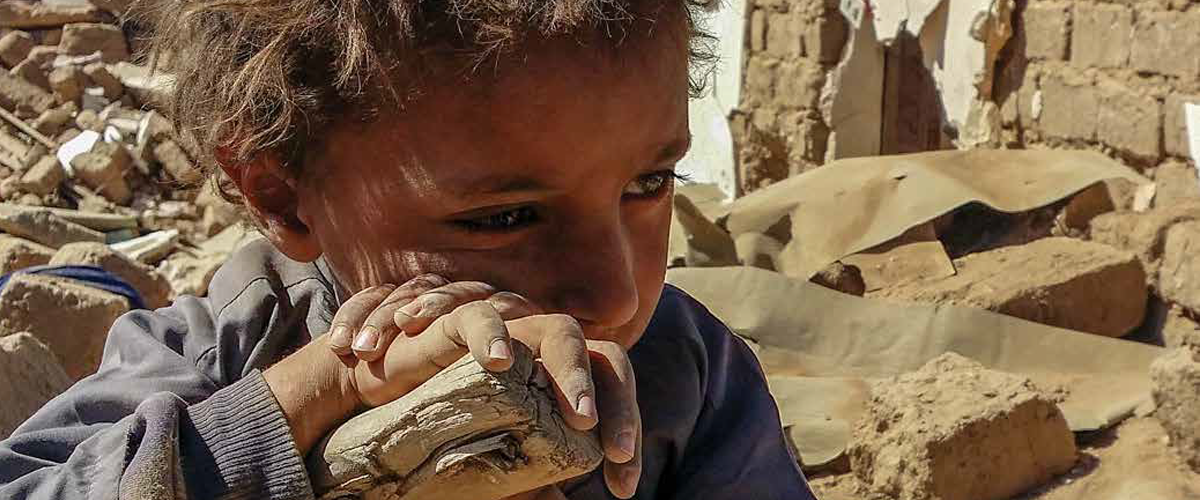 What is Hunger
What is Hunger
Everyone feels hungry on a daily basis. Most people are able to satisfy this craving and need. Even if not immediately, they can count on having a meal or snack within hours. This is not the type of hunger that Bread is concerned with.
People who suffer chronic hunger don’t have the option of eating when they are hungry. They do not get enough calories, essential nutrients, or both. People who are hungry have an ongoing problem with getting food to eat. They have a primary need — how to feed themselves and their children today and tomorrow. They have little energy for anything else.
Access and availability of food
It is commonly known that the cause of hunger in the world is not a shortage of food but rather access to food.
Some people are hungry because food is in short supply in their area and for a specific reason. It may be because they can’t afford to buy enough food. It may be both.
Some countries have a “hunger season” every year. It’s when the previous harvest is gone and the next harvest is not yet ready. It can last as long as three or four months.
The U.S. doesn’t have that kind of a hunger season, but for many families, some weeks are hungrier than others. These usually come toward the end of the month, as families run short of food before they have money to buy more. People can’t simply decide to spend less on rent, but if necessary, they can spend less on food.
For many low-wage workers, retirees, people with disabilities, and their families, even careful planning cannot stretch the grocery budget throughout the month. Less expensive — and less nutritious — filler foods can keep children’s stomachs from growling, but they can’t provide what children need to grow and learn. Adults who are missing meals because they can’t afford to buy food can’t concentrate as well at work.
What is food insecurity?
People in certain conditions, whether they live in the developing world or the United States, are extremely vulnerable to hunger. A month of bad weather for a farmer or an illness for a worker and a loss of income can mean less food and the prospect of hunger.
Food insecurity is the more formal term for this condition. People living with food insecurity lack a stable, reliable means of getting the meals they need.
Bread for the World works toward food security. This means an end not only to chronic hunger and malnutrition, but also to constant worry about where the next meal is coming from.
As the World Food Summit described it, food security is when “all people at all times… have access to sufficient safe and nutritious food… for an active and healthy life.”
Some events, like natural disasters or conflict, are unpreventable and cause hunger. But Bread wants to help end the persistent hunger that exists outside these events.
Source: Text: Bread for the World Image: www.hungerfree.org
 It would be difficult to contest the fact that the bond between siblings is extra-special! Especially because many of them have spent most of their entire lives together. Many people can’t even remember a time when their siblings weren’t part of their lives. Some of them even shared a womb at the same time, if they were born as multiples!
It would be difficult to contest the fact that the bond between siblings is extra-special! Especially because many of them have spent most of their entire lives together. Many people can’t even remember a time when their siblings weren’t part of their lives. Some of them even shared a womb at the same time, if they were born as multiples! organisations from countries and regions all over the world will hold awareness-raising activities.
organisations from countries and regions all over the world will hold awareness-raising activities.
 Around the world, conflict is exacting a massive toll on people’s lives. Trapped in wars that are not of their making, millions of civilians are forced to hide or run for their lives. Children are taken out of school, families are displaced from their homes, and communities are torn apart, while the world is not doing enough to stop their suffering. At the same time, health and aid workers – who risk their lives to care for people affected by violence – are increasingly being targeted.
Around the world, conflict is exacting a massive toll on people’s lives. Trapped in wars that are not of their making, millions of civilians are forced to hide or run for their lives. Children are taken out of school, families are displaced from their homes, and communities are torn apart, while the world is not doing enough to stop their suffering. At the same time, health and aid workers – who risk their lives to care for people affected by violence – are increasingly being targeted. What is Hunger
What is Hunger  Children orphaned by AIDS are just a fraction of the problem, as millions more have been made vulnerable. Behind the statistics are millions of stories of human suffering. The AIDS crisis has a catastrophic impact on households and communities – deepening poverty and exacerbating hardships. More than 95 percent of children affected by AIDS, including orphans, continue to live with their extended families. However, these families are increasingly overwhelmed by poverty and struggle to protect and raise the children in their care.
Children orphaned by AIDS are just a fraction of the problem, as millions more have been made vulnerable. Behind the statistics are millions of stories of human suffering. The AIDS crisis has a catastrophic impact on households and communities – deepening poverty and exacerbating hardships. More than 95 percent of children affected by AIDS, including orphans, continue to live with their extended families. However, these families are increasingly overwhelmed by poverty and struggle to protect and raise the children in their care. Fifth World AIDS Orphans Day: Tens of “Circles of Hope” are created worldwide by young people to remind governments of the objectives set in 2001, when they signed the United Nations Declaration of Commitment on HIV/AIDS.
Fifth World AIDS Orphans Day: Tens of “Circles of Hope” are created worldwide by young people to remind governments of the objectives set in 2001, when they signed the United Nations Declaration of Commitment on HIV/AIDS.